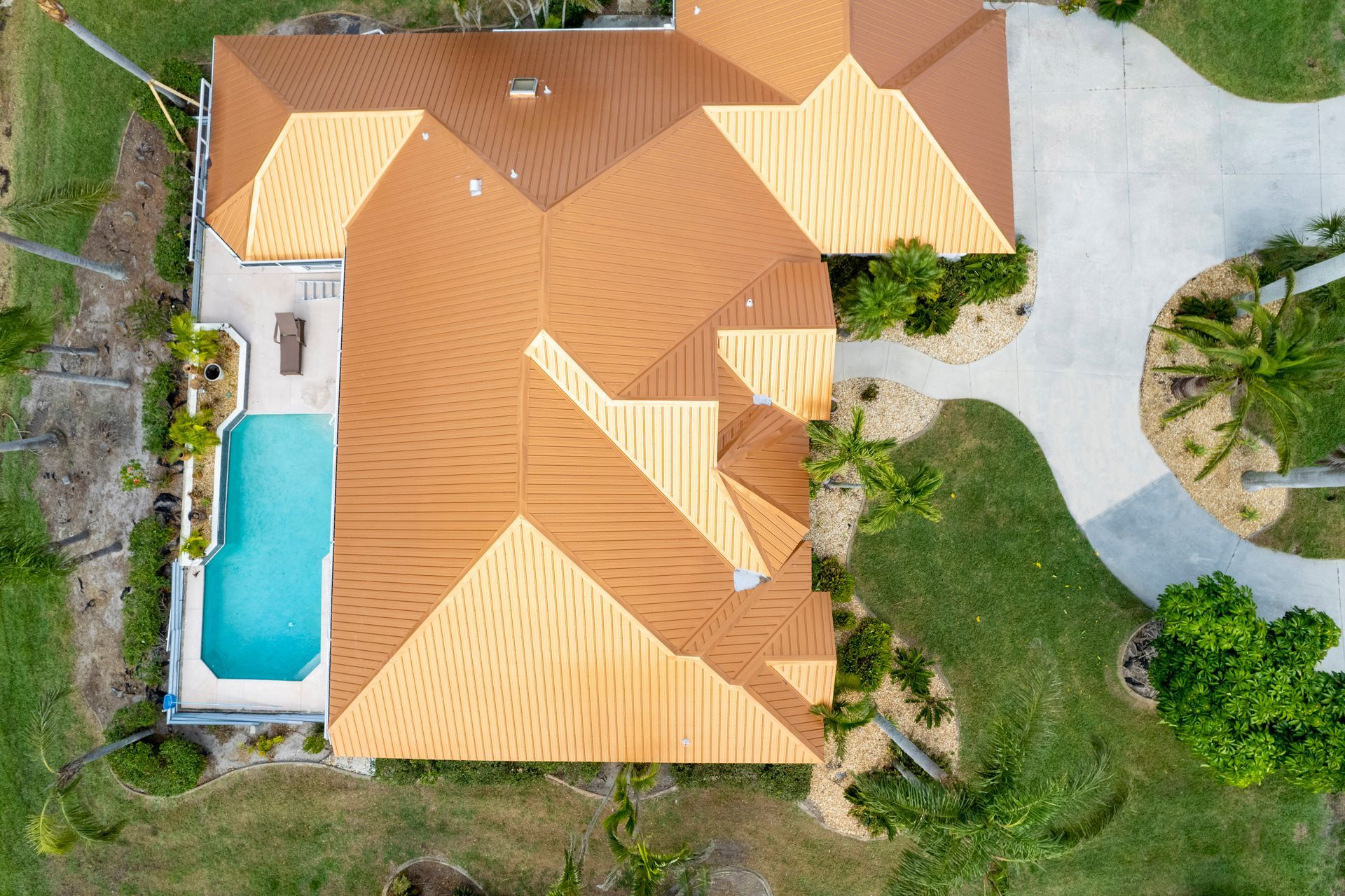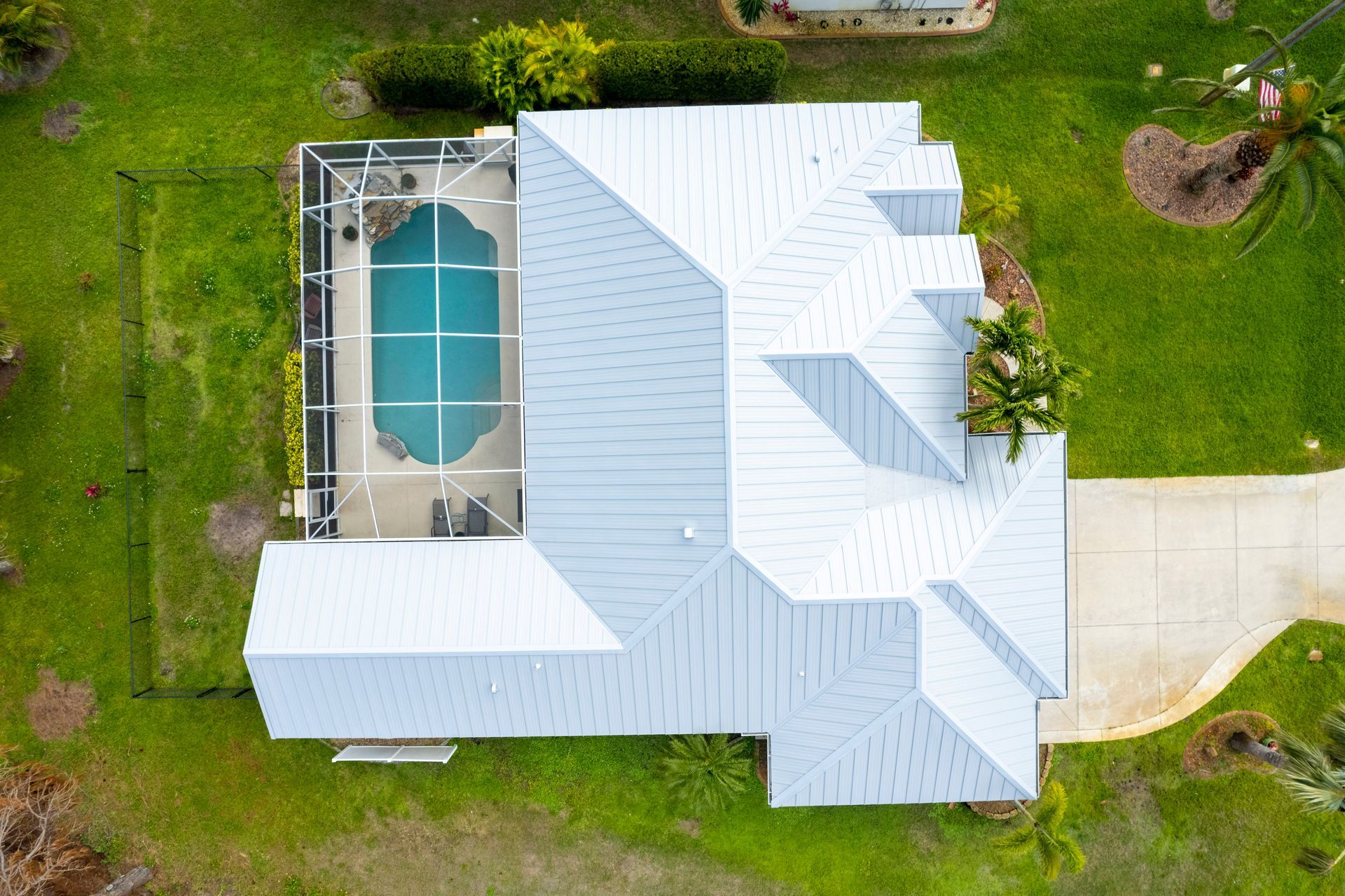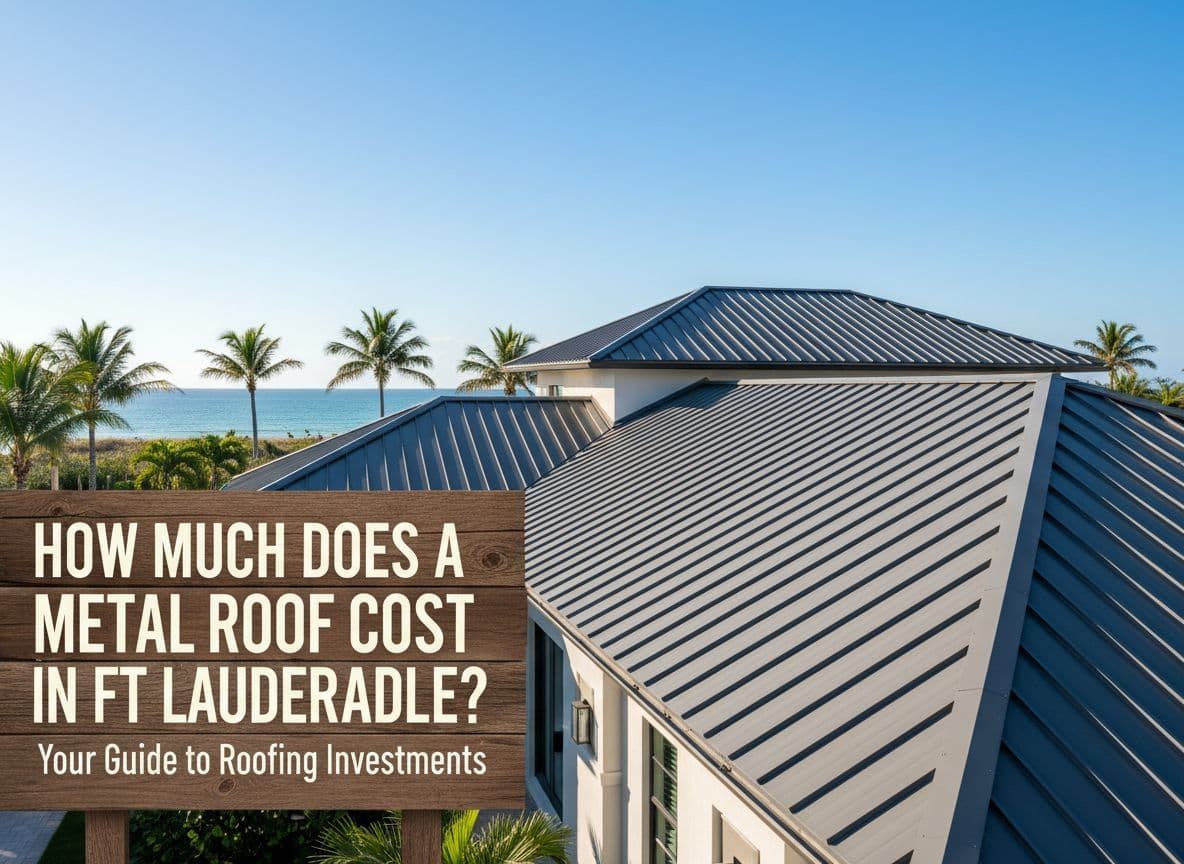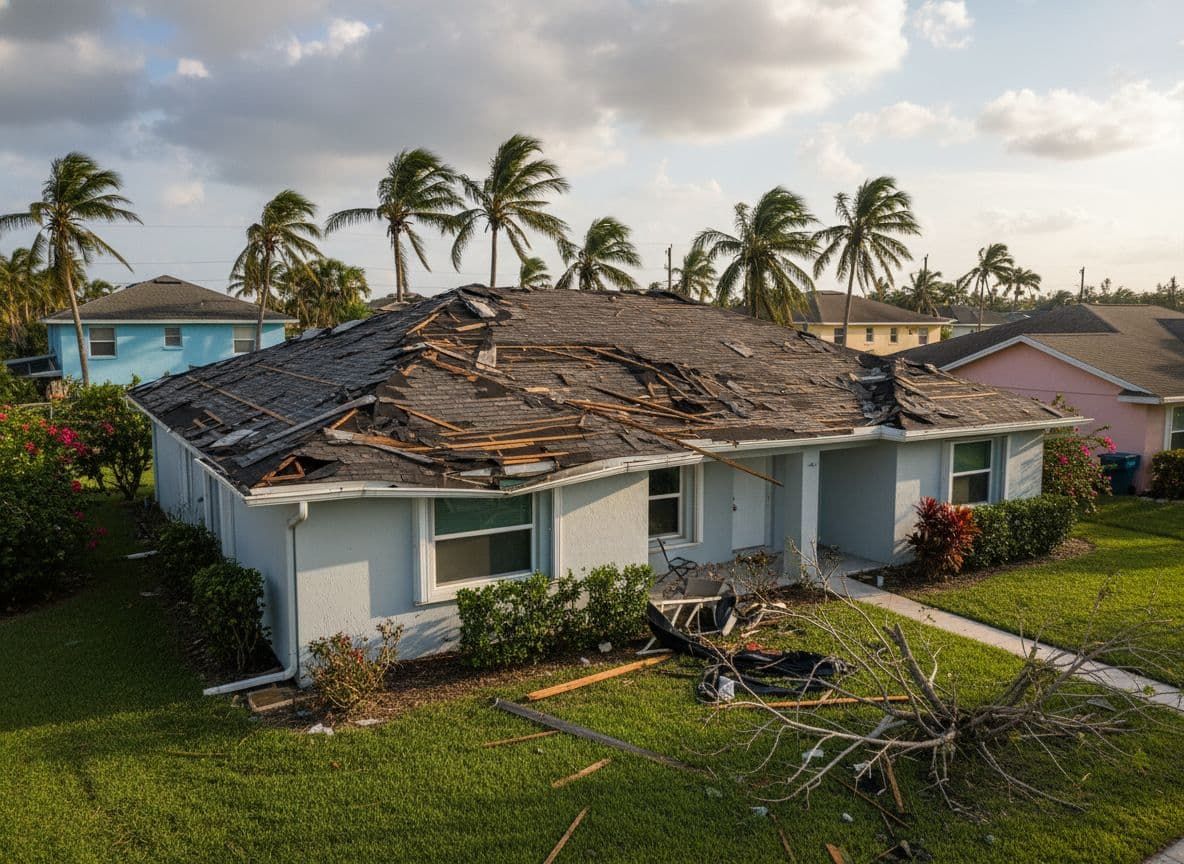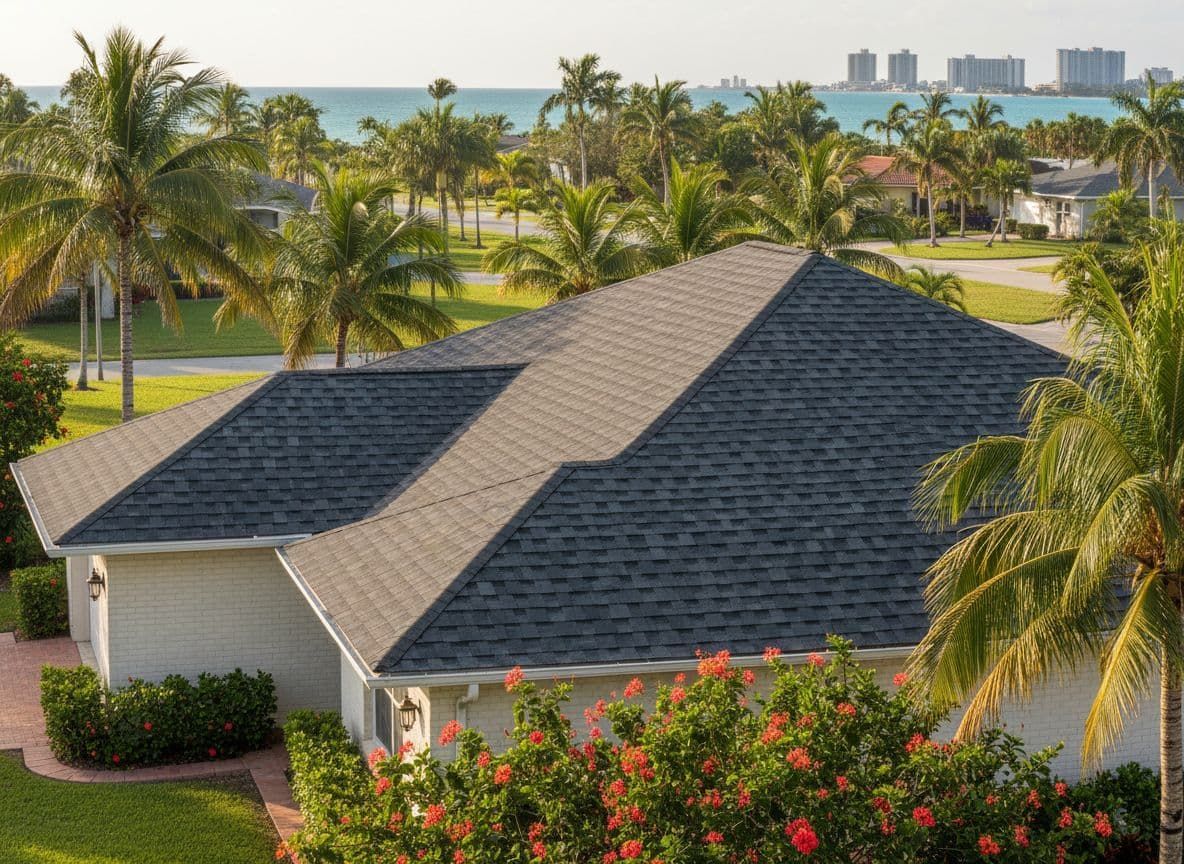How Often Should You Get a Roof Inspection in Ft Lauderdale?
Why Roof Inspections Matter in Ft Lauderdale
In Ft Lauderdale, roof inspections are not just a suggestion—they’re a necessity. The city’s unique climate, with its intense sun, high humidity, and salty ocean air, can wreak havoc on roofing materials. These conditions accelerate wear and tear, making regular inspections crucial for catching small issues before they turn into costly repairs. Without routine checks, homeowners risk facing significant damage that could have been avoided with early intervention.
Moreover, Ft Lauderdale’s hurricane season adds another layer of urgency to roof maintenance. High winds and heavy rains can cause unseen damage that weakens the structure over time. By staying on top of inspections, homeowners can extend the lifespan of their roofs and ensure they remain resilient against the elements. This proactive approach not only saves money but also provides peace of mind during stormy weather.
Recommended Inspection Frequency for Ft Lauderdale Homes
For most homes in Ft Lauderdale, experts recommend scheduling roof inspections twice a year—once in the spring and once in the fall. This biannual schedule aligns perfectly with the region’s weather patterns, allowing you to prepare your roof for both hurricane season and the cooler winter months. Regular inspections help identify vulnerabilities before severe weather strikes, reducing the risk of unexpected failures.
In addition to the biannual checks, it’s wise to arrange an inspection after any major storm or weather event. Hurricanes and tropical storms can cause hidden damage that isn’t immediately visible, such as loose shingles or compromised flashing. Given Ft Lauderdale’s susceptibility to extreme weather, this extra precaution ensures your roof remains in top condition year-round.
Signs You Need an Immediate Roof Inspection
There are certain red flags that should prompt an immediate roof inspection. These include visible signs like water stains on ceilings, leaks during rain, missing or damaged shingles , and sagging areas. If you notice any of these issues, don’t wait—contact a professional right away. Ignoring these warning signs can lead to more extensive and expensive repairs down the line.
Besides obvious damage, there are other scenarios where a roof inspection is essential. For instance, if you’ve recently purchased a new home, scheduling an inspection ensures you’re aware of its current condition. Similarly, many insurance companies require recent inspection reports before renewing policies. Staying proactive about inspections helps avoid surprises and keeps your property protected.
Inspection Frequency Based on Roof Type and Age
The frequency of roof inspections can vary depending on the type of roofing material used. Shingle roofs , for example, may need annual inspections due to their susceptibility to wind and sun damage. Tile roofs , while durable, still require attention to cracks or shifting tiles. Metal roofs, though long-lasting, benefit from periodic checks for rust or fastener issues. Each material has unique needs, so understanding yours is key to proper maintenance.
Roof age also plays a significant role in determining inspection frequency. Newer roofs typically require less frequent checks, perhaps once a year, to ensure everything settles correctly. However, older roofs—those over 15 years—should be inspected quarterly. As roofs age, they become more prone to leaks, structural weaknesses, and other problems that demand closer monitoring.
Special Considerations for Commercial Roofs
Commercial roofs face unique challenges compared to residential ones, requiring special attention. Due to their larger surface area and complex designs, commercial roofs often accumulate debris, ponding water, or drainage issues. To address these concerns, businesses should schedule biannual inspections as a baseline, ensuring all components are functioning properly.
Additionally, post-storm inspections are particularly critical for commercial properties. Storms can expose weak points in flat or low-slope roofs commonly found on warehouses and office buildings. Addressing these issues promptly minimizes downtime and protects valuable assets stored inside. Vigilance is key to maintaining a safe and functional workspace.
What a Professional Roof Inspection Covers
A professional roof inspection goes far beyond a quick visual scan. It involves a comprehensive assessment of both the exterior and interior of the roof. On the outside, inspectors examine shingles or tiles, flashing, gutters, and vents for signs of wear or damage. Inside, they check the attic for leaks, moisture buildup, and structural integrity. This thorough process ensures no potential issue is overlooked.
While some homeowners attempt DIY inspections, they often miss subtle signs of trouble that professionals are trained to spot. A full inspection includes tools and techniques that go beyond what an untrained eye can detect. Investing in a professional evaluation provides a clear picture of your roof’s health and helps prioritize necessary repairs or maintenance.
Impact of Hurricanes and Severe Storms
Hurricanes and severe storms pose one of the biggest threats to roofs in Ft Lauderdale. Even if your roof appears intact after a storm, underlying damage may exist. High winds can loosen shingles, while heavy rains can seep into gaps, leading to mold growth or rot over time. Post-storm inspections are vital for uncovering these hidden dangers before they escalate.
Delaying a post-storm inspection can have serious consequences. What starts as a minor issue can quickly develop into a major problem, potentially compromising the entire structure of your home. By acting swiftly, you can address storm-related damage early, saving yourself from costly repairs and ensuring your roof remains secure through future weather events.
Benefits of Routine Roof Inspections
Routine roof inspections offer numerous benefits that make them well worth the investment. First and foremost, they save money by identifying minor issues before they turn into major headaches. Early detection allows for timely repairs, preventing further damage and extending the life of your roof. Additionally, regular inspections help maintain compliance with warranty and insurance requirements, avoiding penalties or denied claims.
Beyond financial savings, routine inspections provide peace of mind and protect your property value. A well-maintained roof enhances curb appeal and reassures potential buyers if you ever decide to sell. Knowing your roof is in excellent condition also reduces stress, allowing you to focus on enjoying life in sunny Ft Lauderdale without worrying about sudden roof failures.
How to Choose a Roof Inspector in Ft Lauderdale
Selecting the right roof inspector is crucial for getting accurate results and reliable service. Start by looking for licensed and insured professionals who specialize in residential or commercial roofs, depending on your needs. Local expertise matters, as inspectors familiar with Ft Lauderdale’s climate understand the specific challenges your roof faces.
Customer reviews and credentials are excellent indicators of quality workmanship. Ask for sample inspection reports to gauge how detailed and clear their findings will be. Transparent communication and professionalism are key traits to look for when choosing someone to safeguard your most valuable asset—your home or business.
Commonly Asked Questions About Roof Inspections in Ft Lauderdale
How much does a typical roof inspection cost in Ft Lauderdale?
A typical roof inspection in Ft Lauderdale ranges from $100 to $300, depending on the size and complexity of the roof. Some companies offer free estimates, which can be a great way to get started without committing financially. While cost is a factor, prioritize quality and experience when selecting an inspector.
Can I inspect my own roof, or do I need a professional?
While a DIY inspection might seem convenient, it’s no substitute for a professional assessment. Trained inspectors use specialized tools and knowledge to identify issues that untrained eyes might miss. For safety and accuracy, hiring a professional is always the better option.
How long does a professional roof inspection take?
A professional roof inspection usually takes 1 to 3 hours for a standard residential property. Larger or more complex roofs, such as those on commercial buildings, may require additional time. The duration depends on the roof’s size, condition, and accessibility.
Do I need a roof inspection to renew my homeowner’s insurance?
Many insurance companies in Ft Lauderdale require recent roof inspection reports to renew policies. This ensures the roof is in good condition and reduces the likelihood of claims related to preventable damage. Always check with your provider for specific requirements.
Are there different inspection needs for tile, shingle, and metal roofs?
Yes, each type of roof has unique vulnerabilities that influence inspection frequency. Shingle roofs are prone to wind damage, tile roofs may crack under pressure, and metal roofs can corrode over time. Tailoring inspections to your roof’s material ensures comprehensive care.
Conclusion
Timely and regular roof inspections are essential for protecting your property in Ft Lauderdale’s challenging climate. Between the relentless sun, salty air, and hurricane risks, roofs here face constant stress. Scheduling inspections at least twice a year, plus after major storms, helps prevent emergencies and extends the life of your roof.
If you haven’t had your roof inspected recently, now is the time to act. Assess when your last inspection took place and reach out to a qualified professional to schedule one today. Proactive roof care not only saves money but also preserves the value and safety of your home or business. In a storm-prone region like Ft Lauderdale, being prepared is the best defense against unexpected roof troubles.
